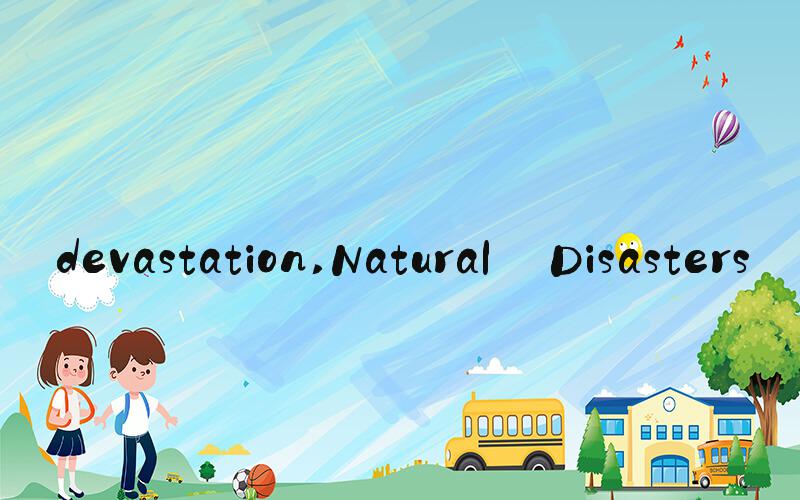AI答案
 Introduction
IntroductionDevastation is a term used to describe widespread destruction and damage to infrastructure, property, and people. It can be caused by natural disasters such as earthquakes, hurricanes, and tornadoes or human-made disasters such as wars, bombings, and nuclear accidents.
Natural DisastersNatural disasters are a major cause of devastation around the world. Earthquakes, hurricanes, and tornadoes are among the most common natural disasters that cause widespread destruction and loss of life. Earthquakes can cause buildings and infrastructure to collapse, leaving people trapped under rubble. Hurricanes and tornadoes can rip through entire towns and cities, leaving thousands of people without homes, food, or clean water.
Human-made DisastersHuman-made disasters are often the result of human error or intentional acts. Wars, bombings, and nuclear accidents are among the most devastating human-made disasters that have occurred throughout history. Wars can cause widespread destruction to cities and towns as well as loss of life. Bombings can cause similar devastation and loss of life, with the added danger of unexploded bombs and debris. Nuclear accidents can cause long-lasting damage to the environment, leaving communities without access to clean air and water.
The Impact of DevastationThe impact of devastation can be felt for many years after the event. In addition to the loss of life and damage to infrastructure, devastation can also cause psychological trauma to those affected. Many people who have survived natural disasters or human-made disasters suffer from post-traumatic stress disorder, anxiety, and depression. The economic impact of devastation can also be significant, with businesses and industries disrupted and many people left unemployed.
Preventing DevastationWhile it's impossible to completely prevent natural disasters and human-made disasters, there are steps that can be taken to minimize their impact. Building codes and regulations can be put in place to ensure that buildings are constructed to withstand natural disasters, such as earthquakes and hurricanes. Emergency response plans can be developed to quickly and effectively respond to disasters, potentially saving lives and reducing the extent of the devastation. International cooperation and diplomacy can be used to prevent conflicts that can lead to wars and other human-made disasters. Investing in renewable energy sources can also help to prevent nuclear accidents and reduce the impact of climate change, which can increase the frequency and severity of natural disasters.
ConclusionDevastation can have a profound impact on individuals, communities, and entire countries. While it's impossible to completely prevent natural disasters and human-made disasters, steps can be taken to minimize their impact and help affected communities recover. By working together and investing in preventive measures, we can reduce the frequency and severity of devastation and create a safer, more resilient world.
